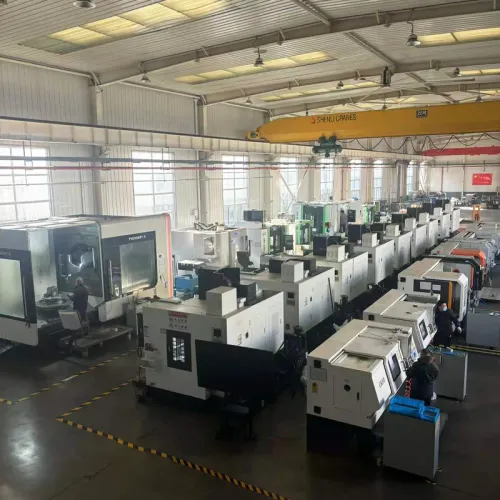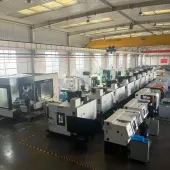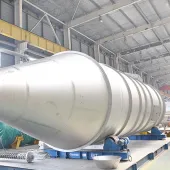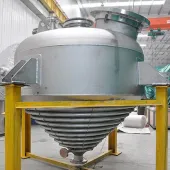
How Titanium Equipment Enhances Industrial Performance
Titanium is no longer a niche material used only in aerospace or medical fields — it has become an essential element in industrial equipment due to its unmatched resistance to corrosion, extreme temperatures, and mechanical wear.
From pressure vessels and heat exchangers to reactors and piping systems, titanium equipment is proving its worth in some of the world’s most demanding environments. This article explores how titanium-based industrial equipment outperforms traditional materials and delivers long-term value.
Exceptional Corrosion Resistance
Titanium’s natural oxide film makes it virtually immune to corrosion in:
- Acidic and alkaline environments
- Seawater and brine systems
- Chloride-rich and oxidizing conditions
- High-humidity chemical processing
This resistance translates into fewer maintenance shutdowns, longer service life, and improved operational safety.
For example, titanium heat exchangers used in hydrochloric acid plants or desalination systems can operate for decades without pitting or corrosion damage — something that even high-grade stainless steel cannot guarantee.
High Strength-to-Weight Ratio
Titanium equipment offers mechanical strength on par with carbon steel, but with nearly half the weight. This allows:
- Easier transport and installation
- Reduced structural load on supporting systems
- Safer operations in mobile or elevated environments
In modular chemical plants and offshore platforms, the weight reduction provided by titanium can result in significant engineering and cost advantages.
Thermal and Chemical Stability
Titanium maintains its properties even at elevated temperatures (up to 600°C for some alloys). Unlike other metals, it resists degradation under thermal cycling and does not embrittle when exposed to reactive substances such as chlorine, nitric acid, or organic solvents.
That makes it ideal for:
- Reactors
- Condensers
- Heating coils
- Acid recovery systems
Common Types of Titanium Equipment
Depending on the industry, titanium is fabricated into a wide range of specialized equipment:
- Titanium pressure vessels
- Titanium heat exchangers
- Titanium reactors and autoclaves
- Titanium filter housings
- Titanium piping and tube bundles
- Titanium anodes for electrochemical systems
All these products are customized to meet the specifications of demanding industrial processes, often under international standards like ASME, PED, or ASTM.
Long-Term Economic Advantage
While titanium equipment comes with a higher initial cost, the long-term savings are substantial:
- No frequent replacement or relining
- Lower maintenance and labor costs
- Reduced unplanned downtime
- Higher process efficiency
Over the lifecycle of a chemical plant or water treatment system, titanium’s durability can lower total ownership cost by 30% to 50% compared to stainless steel or other alloys.
Conclusion
Titanium equipment delivers a powerful combination of corrosion resistance, mechanical strength, and longevity — especially in industries where failure is not an option. If your operations involve aggressive chemicals, seawater, or high-pressure conditions, investing in titanium equipment is a strategic move.
At Titanium Seller leads, we design and manufacture a full range of titanium process equipment, fully certified and tailored to your technical requirements. Contact us today to learn more about custom fabrication and project support.
Quick Contact
Related Products
-

Titanium Equipment
Titanium Equipment
-

Key Industrial Applications of Titanium Equipment and Why Demand Is Growing
Titanium Equipment
-

The Role of Titanium Equipment in Green and Sustainable Industries
Titanium Equipment